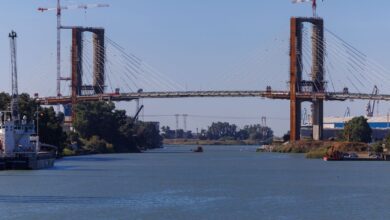
Tensions are rising in Galicia over plans to build a large-scale pulp mill in the municipality of Palas de Rei (Lugo). The project, backed by regional authorities, has sparked a wave of discontent among local residents and environmentalists. Their slogans and symbols have already become an integral part of protests throughout the region, appearing on clothing and street walls.
Although the project received environmental approval from the regional government, its implementation is now in doubt. After the initiators failed to secure European funding, serious concerns emerged about the project’s economic viability. In addition, the plant was not included in the list of facilities for which the central authorities plan to build new power grids, further complicating prospects for launching production.
Activists and environmentalists opposing the construction of the factory are not backing down. They are already preparing legal actions, challenging the allocation of water resources for the future plant. According to them, authorities exceeded the permissible review periods for documentation, and the project itself threatens the ecosystem of the Ulla River, which supplies water to eleven municipalities and supports the region’s fishing industry. Opponents point out that the company plans to extract and discharge up to 46 million liters of water per day into the river—an amount comparable to the consumption of an entire province.
Fishermen and representatives of the maritime sector fear that the launch of the plant will lead to a decline in water quality and harm their income. At the same time, Greenfiber, the company behind the project, acknowledges that significant government support is required for the construction—one quarter of the budget, that is, 250 million euros out of a billion.
The latest blow to the project came when the government refused to include the plant in the electricity grid development plan until 2030. Authorities explained that they needed to select the most viable and socially significant projects to avoid increasing costs for consumers. If the construction fails, new infrastructure will remain unused, which, according to officials, is unacceptable.
Greenfiber and regional authorities argue that this decision restricts the economic prospects of the entire Lugo province and deprives it of new jobs. In the near future, the project planners intend to closely examine the ministry’s reasoning and do not rule out filing objections. Meanwhile, legal proceedings and public debates around the plant continue, and its future remains uncertain.












